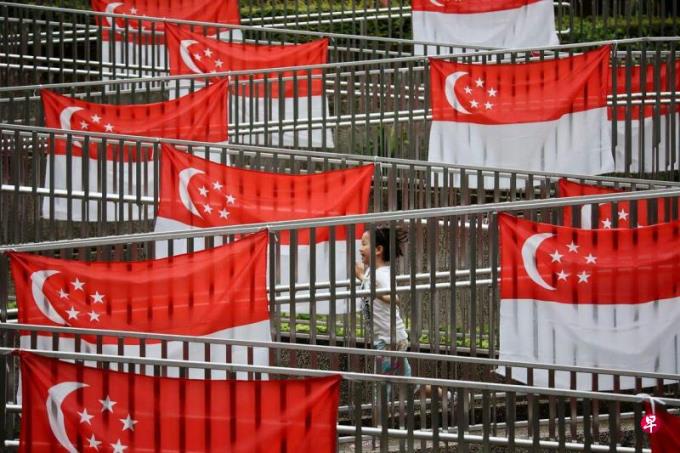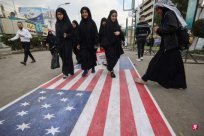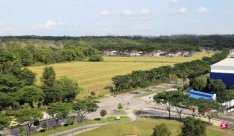
Singapore is one of the few countries that admire me today.However, the core significance of Singapore is neither Singapore itself, nor its prosperity allows the people to live a good life, but the significance of its world history and the significance of Chinese history -Singapore's most model shows the new world and Chinapossible.
The meaning of Singapore's world history in the big change
As a small country with extremely lack of resources, Singapore has ranked among developed countries in about 30 years after the founding of the People's Republic of China, which is unique in human history.Its success has at least two necessary conditions internal and external.
Internal conditions refer to human factor.From the perspective of resources, the internal conditions of Singapore have nothing to do, only people.Its success relies on the hardships and profound views of the founding generation and successors represented by Lee Kuan Yew.In particular, Lee Kuan Yew has the ability to integrate political strategists and technical bureaucrats, which can be described as a model of modern politicians.
However, if there are no external conditions, the world environment, no matter how outstanding Li Guangyao is, Singapore will not be able to prosper.External conditions can be summarized as post -territory and post -geographical era.It is characterized by the interaction of factors such as technological progress and the advancement of global trade rules since the Second World War, especially since the 1970s, which has caused huge changes in wealth production methods and war forms.This has led to the increasing importance of science and technology, capital, and management in wealth production and national security, and the importance of territorial and geography has decreased (the post -geopolitical era is not the focus of this article).
Due to technological progress, human activities are increasingly surpassing space restrictions, so that wealth production presents significant de -localized characteristics (including domestic alienization and transnationalization), that is, although wealth production still depends on land, it no longer depends on specific territories and landThis is "post -territory" or even "post -land".The essence of production and localization is to be able to use global resources more freely and fully. It is manifested as the second wave of globalization we see.However, if the second wave of globalization is regarded as the fundamental cause of peace and development after World War II, it is inaccurate and misleading, because globalization does not necessarily cause peace and development.In the first wave of globalization, there were not only a large number of colonies, but also caused two world wars due to territorial and geographical competition.What truly promotes the peace and development after World War II is the post -territory of the post -territory that transcends space, and the second wave of globalization is a representation formed by this ability combined with the international order after World War II (see Deng Xize: long -term peaceful development after World War II:Origin from the change of concept, the September 18, 2023 September 18, 2023).
After World War II, the second wave of globalization that was essentially the essence of the post -territory after use. Many countries and regions around the world or once again achieved development and prosperity.In Asia, there are Singapore, South Korea, Hong Kong, Taiwan, etc., and mainland China is also a huge beneficiary.However, Singapore is the most model.
The success of Singapore means that even if it is a small country with extremely lack of resources, it can not launch war or colonial. Instead, it can surpass space by relying on technology and international order, and use global resources to prosper.This is absolutely not in human history.In this sense, war is unnecessary.In the past, humans could not get rid of war, but humans in this era could get rid of traditional hot war.
This is Singapore's world historical significance.
The meaning of Chinese history in Singapore under the vision of modernity
Singapore also has a significant feature, which is the Chinese as the main body.Moreover, most of the early immigrants were "low -end population", as Li Guangyao said: "I think they (referring to China) really want to catch up, even better than Singapore, there will be no problem at all;However, it is just the descendants of farmers who have unknown and field farmers in Fujian, Guangdong and other places, but some of them are the descendants of the official officials and scholars in the Central Plains.Become a developed country.The success of Singapore means that even under the conditions of territorial and resources, the Chinese can succeed.
Singapore can succeed, why can't China be?But can Singapore succeed, can China be able to be successful?I'm afraid I can't be blindly confident.The Chinese should study and reflect on it rationally and calmly. Compared with the traditional society, what reforms did Singapore make (or the "profit or loss" of Confucius)?
According to rumors, Lee Kuan Yew once expressed a point: "The key to the success of Singapore is the rule of law system left by the British, not Confucian culture.", But introduce modernity.Of course, this is not to deny the tradition, but to be based on modernity.Modern values (such as the rule of law, democracy, equality, human rights, etc.) have both general principles and specific applications.On the basis of following the general principles of modern value, Singapore considers traditional factors and creates more fair and orderly and efficient.In just decades, it has achieved high development speed and quality.
Since the reform and opening up, China's economic and social construction has made significant progress, but in recent years, some backward ideas, policies and measures that violate modern values have been around.If China wants to achieve healthy, sustainable, and stable development, it should be studied in depth and carefully to understand what reforms should be learned from the world (whether it is the old tradition or the new tradition after 1949).
China may indeed succeed and may even be more successful than Singapore, but it cannot adhere to tradition, but must follow the general principles of modern value.Under the previous mention, the national conditions can be considered appropriately, but the general principles cannot be twisted or even denied the general principles.For example, former US Secretary of State Kissinger, who died last year, said that ancient China "may also be the most organized country in the world."If China follows modern value and combines its own tradition, it can also create more fair and orderly and efficient.
This is the meaning of Chinese history in Singapore.
Singapore's stupid and ridiculous view of today's world
The world today seems more and more chaotic, and the risk of war has continued to increase.What encourages this risk is the concept of corruption pursued by the world, especially Russia, and the United States.Their cognition remains in the World War II, and still uses land possession and geopolitical control as an important strategic goal like in the past.Their cognitive logic and factual logic are completely broken, and they have not realized at all: human beings have entered the era of great change, and one aspect of this change -post -territory after the territory has come and mature, so human territorial views, soGeop perspective, war concept, political outlook, etc. should have evolved.
A metaphorical and understanding of the concepts of Putin and Bayeng with an example of China.
For thousands of years, Chinese farmers have regarded land as the root of their lives.In the early 1980s, phenomena of working, business, etc. are not common, and land revenue is still the main income of farmers.Therefore, we can often see that farmers have serious conflicts and even causing casualties to compete for a few square meters of land that are not clear enough.However, later, migrant workers and business have become increasingly common. Non -agricultural income is increasing, and both income and yields far exceed agricultural returns. Farmers can no longer see that farmers conflict in order to compete for small land.In addition, in the past two or three decades, there have been more and more in rural areas, and more and more.This shows that even farmers (many of them) have realized that the importance of land has declined significantly.In this case, do you make a big move to fight for that land?You know, Russia is the most lack of land.
In this sense, Putin, Bynden ... not as good as Chinese farmers.
I am not a romantic Utopia peaceologist, and I also think that the previous world cannot get rid of war.However, the success of Singapore has confirmed that today's world can not pass through war and colonialAnd realize prosperity.So, is it necessary to launch a war?
I hope Singapore will continue to provide significance to the world and China!This significance is getting bigger because of the "small" of Singapore.
The author is a professor at the School of International Relations of Sichuan University




